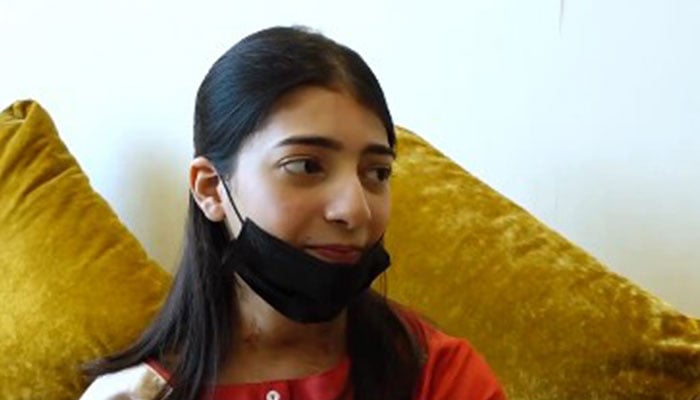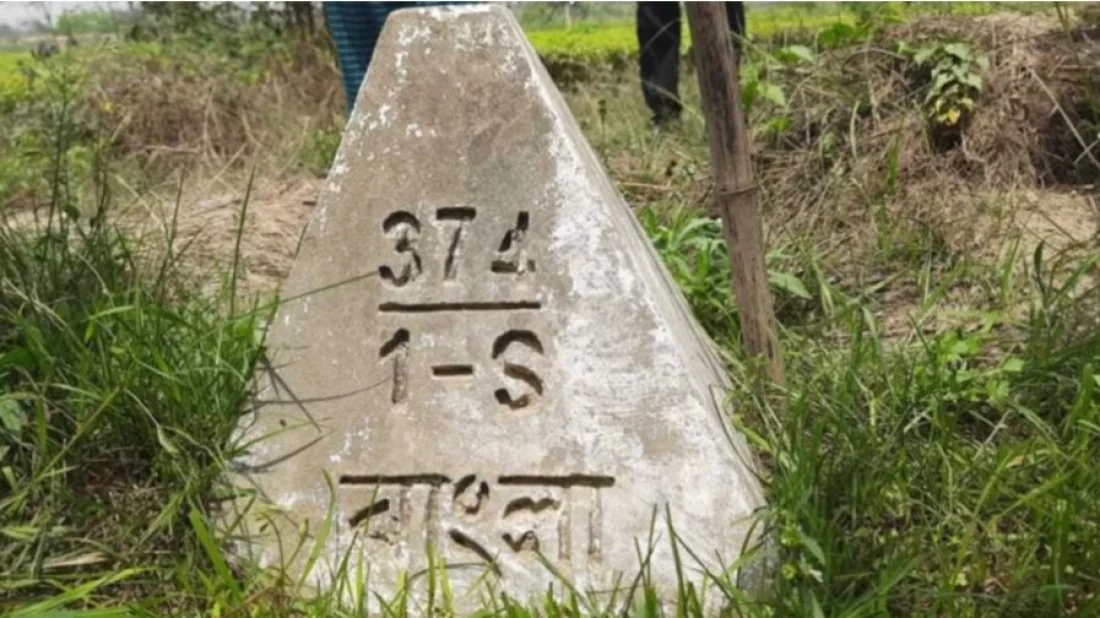Ayesha is currently under observation at MGM Healthcare, where the transplant took place  This image shows Pakistan's Ayesha Rashid, who was recently given the heart of a 69-year-old brain-dead Indian patient at a hospital in Chennai. — Screengrab/X/@bbctamil/File
This image shows Pakistan's Ayesha Rashid, who was recently given the heart of a 69-year-old brain-dead Indian patient at a hospital in Chennai. — Screengrab/X/@bbctamil/File
ISLAMABAD: Pakistani heart patients seeking life-saving transplants in the south Indian city of Chennai have been bearing the brunt of strained political relations between Pakistan and India as they are struggling to get visas and much-needed health services.
Over a hundred thousand people develop ‘Dilated Cardiomyopathy’, a disease in which the heart chambers become dilated and the muscles weaken, impairing the heart’s ability to effectively pump blood, experts say. Approximately 5-7 percent of people suffering from this condition require heart transplantation to survive.
“My 11-year-old son is suffering from heart weakness, and cardiologists have recommended a heart transplant as the only solution. Unfortunately, no center in Pakistan offers heart transplantation services, so I want to take my son to India for a heart transplant,” said the mother of an ailing boy, a resident of Gulshan-e-Iqbal, Karachi.
Recently, Indian media reported the story of 19-year-old Ayesha Rashid from Karachi, who traveled to Chennai, India, where a team of cardiac surgeons led by Dr. KR Balakrishnan performed a successful heart transplant. Ayesha is currently under observation at MGM Healthcare, where the transplant took place.
So far, approximately six people from Pakistan have undergone heart transplants in India and two, including Muhammad Faisal and Ayesha Rashid, have survived. Unfortunately, four others, including Qari Zubair from Gujrat, could not survive. Additionally, a large number of Pakistani children have undergone heart surgeries in Chennai, India, for conditions like Atrial Septal Defect (ASD) or Ventricular Septal Defect (VSD) in recent years.
According to a recent study conducted in 2023 titled “Obstacles to Deceased Donor Transplantation in Pakistan,” around 50,000 people die each year due to end-stage organ failure without receiving a transplant. This includes 15,000-18,000 deaths from kidney failure, 10,000 from liver failure and 7,000 people who require heart transplants annually in Pakistan.
Pakistani cardiac surgeon Dr Pervaiz Chaudhry, who is working to establish a cardiac transplant program in Lahore, mentioned that 3,000 cardiac transplants are performed annually in the United States and estimated that at least 1,000 people in Pakistan need heart transplants.
Pakistan National Heart Association (PANAH) secretary general Sanaullah Ghumman claimed that on two occasions, surgeons from the Armed Forces Institute of Cardiology (AFIC) in Rawalpindi were about to perform heart transplants after receiving consent from the relatives of brain-dead individuals. Unfortunately, the relatives changed their decisions after the deaths of their loved ones, leading to deaths of patients requiring donor hearts within days.
Ghumman emphasized the need to convince people to donate their organs during their lifetime and even after death, emphasizing that it was a significant act of charity and service to humanity.
Naveed Aslam, who has assisted dozens of Pakistanis in traveling to India for medical treatment, including heart transplants, acknowledged that Indian authorities were now only issuing visas to patients with recommendation letters from transplant centers in India. Obtaining Indian visas has become challenging for Pakistani patients and their parents due to the high cost of treatment exacerbated by the higher value of Indian rupee compared to the Pakistani currency, he added.
Lauding the doctors and surgeons in Tamil Nadu, especially those in Chennai, Naveed Aslam described South Indians as “very humble people” who do not discriminate based on ethnicity, religion, caste or nationality. He highlighted the compassion of Dr. KR Balakrishnan, who performed the heart transplant for 19-year-old Ayesha Rashid from Karachi and even partially covered the transplant cost because her mother could not afford it.
Aslam urged Pakistani and Indian health institutions, including the National Institute of Cardiovascular Diseases (NICVD), Punjab Institute of Cardiology and others to enhance cooperation for the benefit of patients. He emphasized that thousands of lives in both Pakistan and India could be saved through increased collaboration and cooperation between the two countries in the healthcare sector.
The Indian High Commission in Islamabad declined to comment on the issue despite repeated attempts to ascertain the Indian government’s stance on the difficulties faced by Pakistani patients traveling to India for medical treatment.












